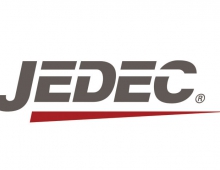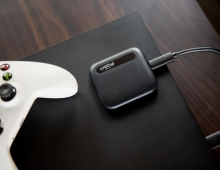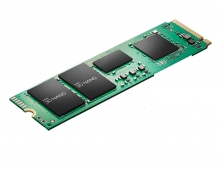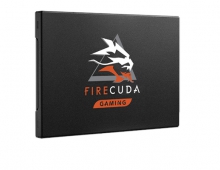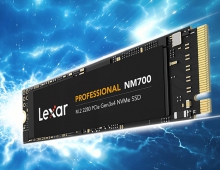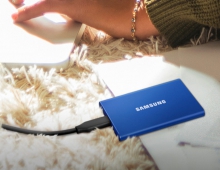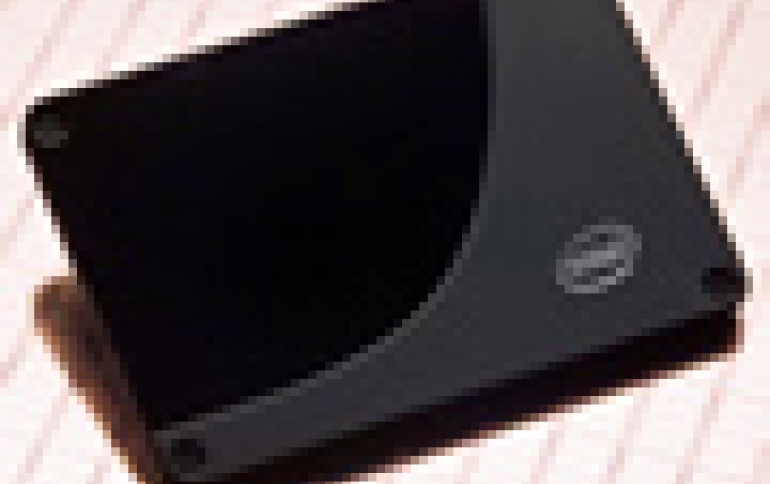
Hard Drive-Based PCs Maintain Near-Term Dominance over SSDs in Notebook Market
Despite sluggish sales, conventional notebook PCs equipped with hard disk drives (HDD) as their main storage medium are unlikely to have their market share threatened in the near term by Microsoft's new Surface tablet PC or by rival notebooks that entirely eliminate HDDs and instead employ solid state drives (SSD), according to an IHS iSuppli.
Among all notebook PCs outfitted with either HDD or SSD as their storage media, models with hard disks larger than 500 gigabytes (GB) and priced from $450 to $550 accounted for the biggest share of the market in the first quarter, at 32 percent, the research firm reported. The second-biggest segment of 26 percent belonged to notebooks integrating hard disk drives larger than 320GB and priced between $350 and $450. Only 3 percent of the market belonged to 128GB SSD laptops or very high-end HDD notebook PCs both priced above $900.
The notebook PCs in consideration here use entire HDDs or SSDs as their storage capacity; not included are notebook PCs featuring a hybrid form of storage media - such as a hard disk drive complemented by a cache solid state drive, as in the case with the newly popular Ultrabooks; or a hard disk alongside a separate layer of NAND flash memory.
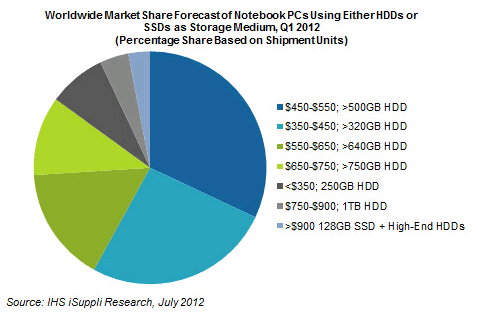
"The market-share rankings show that SSD-based notebook PCs like Apple Inc.'s MacBook Air presently pose no threat to the much larger universe of HDD-based mobile PCs," said Fang Zhang, analyst for storage systems at IHS. "SSD-equipped notebooks are faster, more lightweight and sport a thinner profile - some of the characteristics that make them popular and desirable to consumers - but they are also more expensive and feature less overall storage space. The price of a MacBook Air with just a 64GB solid state drive can reach $999, while an HDD-based notebook PC at that price can boast significantly larger storage space."
The recent market-share rankings do not take into account the influence of the yet-to-be-released Surface tablet PC from Microsoft. But because the tablet is set to launch in the third quarter, its appearance will be too late to have any significant negative impact on the notebook PC market in 2012, IHS believes.
Moreover, the consumer tablet version of the Surface, dubbed RT, features just 32GB to 64GB of SSD space - too small to run against conventional notebook PCs. Contention could conceivably arise in the form of the Pro version of the Surface, whose SSD storage of 64GB to 128GB SSD means the tablet could be used as a functional PC?even though its real bearing on the notebook market cannot be gauged until the Surface Pro is introduced sometime early next year.
Still, the HDD-based notebook PC space could come under fire should the price of either SSD-equipped notebooks or the Surface tablet PC fall below $700, the sweet spot for pricing currently for notebook computers as a whole. For instance, a price cut by Apple on the MacBook Air will likely affect the future prospects of HDD-based notebooks.
The threat potential from the Surface is more uncertain at this point given that no firm pricing for the device is yet available. However, the same price ceiling of $700 applies, and notebook PCs in general could very well feel the competitive heat of the tablet PC, especially as the Surface already carries a physical keyboard?something missing from the reigning champion of the overall tablet space, the Apple iPad, which uses only virtual keys. Already, sales of notebook PCs have suffered in the time that the iPad first entered the market in 2010 and cannibalized notebook sales in the process.
That's not to say that HDD-based notebooks have no options of their own. More capacious and priced affordably, HDDs currently enjoy an advantage compared to the relatively low storage capacity of tablet PCs or the currently high price of SSD notebooks. As a result, the HDD industry can continue to explore opportunities in the segments where hard disk drives count continuing support - areas such as the enterprise space, security applications, external drives and the online cloud. And with future demand for storage expected to increase, the appeal of large-capacity, economically priced HDDs cannot be underestimated.
For now at least, the HDD industry can rest secure in the knowledge that hard disks will continue to be the dominant storage medium for notebook computers?until the next battle shapes up from SSDs and tablet PCs.
The notebook PCs in consideration here use entire HDDs or SSDs as their storage capacity; not included are notebook PCs featuring a hybrid form of storage media - such as a hard disk drive complemented by a cache solid state drive, as in the case with the newly popular Ultrabooks; or a hard disk alongside a separate layer of NAND flash memory.

"The market-share rankings show that SSD-based notebook PCs like Apple Inc.'s MacBook Air presently pose no threat to the much larger universe of HDD-based mobile PCs," said Fang Zhang, analyst for storage systems at IHS. "SSD-equipped notebooks are faster, more lightweight and sport a thinner profile - some of the characteristics that make them popular and desirable to consumers - but they are also more expensive and feature less overall storage space. The price of a MacBook Air with just a 64GB solid state drive can reach $999, while an HDD-based notebook PC at that price can boast significantly larger storage space."
The recent market-share rankings do not take into account the influence of the yet-to-be-released Surface tablet PC from Microsoft. But because the tablet is set to launch in the third quarter, its appearance will be too late to have any significant negative impact on the notebook PC market in 2012, IHS believes.
Moreover, the consumer tablet version of the Surface, dubbed RT, features just 32GB to 64GB of SSD space - too small to run against conventional notebook PCs. Contention could conceivably arise in the form of the Pro version of the Surface, whose SSD storage of 64GB to 128GB SSD means the tablet could be used as a functional PC?even though its real bearing on the notebook market cannot be gauged until the Surface Pro is introduced sometime early next year.
Still, the HDD-based notebook PC space could come under fire should the price of either SSD-equipped notebooks or the Surface tablet PC fall below $700, the sweet spot for pricing currently for notebook computers as a whole. For instance, a price cut by Apple on the MacBook Air will likely affect the future prospects of HDD-based notebooks.
The threat potential from the Surface is more uncertain at this point given that no firm pricing for the device is yet available. However, the same price ceiling of $700 applies, and notebook PCs in general could very well feel the competitive heat of the tablet PC, especially as the Surface already carries a physical keyboard?something missing from the reigning champion of the overall tablet space, the Apple iPad, which uses only virtual keys. Already, sales of notebook PCs have suffered in the time that the iPad first entered the market in 2010 and cannibalized notebook sales in the process.
That's not to say that HDD-based notebooks have no options of their own. More capacious and priced affordably, HDDs currently enjoy an advantage compared to the relatively low storage capacity of tablet PCs or the currently high price of SSD notebooks. As a result, the HDD industry can continue to explore opportunities in the segments where hard disk drives count continuing support - areas such as the enterprise space, security applications, external drives and the online cloud. And with future demand for storage expected to increase, the appeal of large-capacity, economically priced HDDs cannot be underestimated.
For now at least, the HDD industry can rest secure in the knowledge that hard disks will continue to be the dominant storage medium for notebook computers?until the next battle shapes up from SSDs and tablet PCs.

